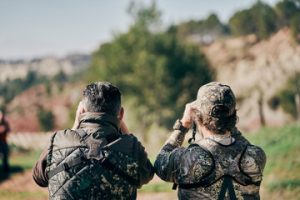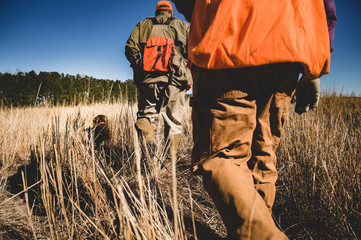Hunting is an age-old practice that combines skill, patience, and respect for nature. For beginners, it can seem intimidating—but with the right knowledge and preparation, hunting can become a rewarding experience. This basic hunting guide will cover essential tips, recommended gear, and safety practices every beginner needs to know before heading into the wilderness.
Why Preparation Matters in Hunting
Hunting isn’t just about heading outdoors with a weapon; it requires careful planning, understanding of wildlife, and a commitment to safety. Proper preparation ensures:
- Ethical and Legal Hunting – Following regulations protects wildlife populations.
- Personal Safety—Knowing how to handle gear and navigate terrain reduces risks.
- Successful Experience – Preparation increases your chances of a productive hunt.
Step 1: Understand Hunting Laws and Regulations
Every region has specific hunting laws designed to protect wildlife and ensure sustainability. Before you begin:

- Obtain the necessary licenses or permits—most areas require hunting licenses, and some species may need additional tags.
- Know the hunting seasons—Hunting certain animals outside the designated season is illegal.
- Familiarize yourself with bag limits and restrictions—These rules prevent overharvesting and maintain ecological balance.
Following regulations isn’t just a legal requirement; it’s part of ethical hunting.
Step 2: Learn Basic Hunting Skills
Before heading into the field, beginners should practice essential skills:
- Firearm or Bow Handling – Learn how to handle and store your weapon safely.
- Marksmanship – Practice shooting at a range to improve accuracy and confidence.
- Tracking and Scouting – Understand animal behavior and learn to read tracks and signs.
Many areas offer hunter education courses, which are highly recommended for safety and legal compliance.
Step 3: Choose the Right Gear
The right equipment can make your hunting experience safer and more efficient. Basic gear includes:
- Firearm or Bow – Choose based on the game you’re hunting and your comfort level.
- Ammunition or Arrows – Use the correct type for your target species.
- Hunting Clothing – Wear camouflage or earth tones and dress in layers for changing weather.
- Safety Gear – A blaze orange vest or hat is often required for visibility.
- Other Essentials – Binoculars, a knife, a field dressing kit, maps, a compass or GPS, and a first-aid kit.
Quality gear enhances comfort and reduces the risk of accidents.
Step 4: Practice Ethical Hunting
Responsible hunting means respecting the environment and the animals you pursue. Key principles include:

- Fair Chase—Avoid methods that give you an unfair advantage.
- Quick and Humane Kills—Aim for vital areas to minimize suffering.
- Leave No Trace—Pack out all trash and avoid damaging natural habitats.
Ethical hunting builds respect for nature and promotes a positive image of the sport.
Step 5: Prioritize Safety at All Times
Safety should be your top priority when hunting. Important tips include:
- Treat every weapon as if it’s loaded—never point it at anything you don’t intend to shoot.
- Know your target and what’s beyond it—Avoid accidents by being certain before pulling the trigger.
- Use proper tree stand precautions—If using a tree stand, always wear a safety harness.
- Communicate your plans—Let someone know where you’re hunting and when you expect to return.
Carrying a fully charged phone or two-way radio for emergencies is also recommended.
Step 6: Learn Basic Field Dressing and Processing
After a successful hunt, you need to know how to handle your game properly:
- Field Dressing—This removes internal organs to preserve meat quality and prevent spoilage.
- Cooling and Transport—Keep the meat cool during transport to maintain freshness.
- Processing and Storage—Decide whether to process it yourself or use a professional service.
Proper handling ensures safety and allows you to make the most of your harvest.
Common Mistakes Beginners Should Avoid
- Skipping Hunter Education—Lack of training can lead to accidents.
- Overpacking or Underpacking – Bring only essential gear, but don’t forget safety items.
- Ignoring Wind Direction—Scent plays a major role in hunting; always check wind conditions.
- Hunting Without a Plan – Always scout your area and plan your route.
Avoiding these mistakes helps ensure a safer and more successful hunt.
Final Thoughts
Hunting is more than a sport; it’s a tradition that requires patience, responsibility, and respect for nature. For beginners, the key to a successful hunt lies in preparation, safety, and ethical practices. By understanding regulations, choosing the right gear, and continuously improving your skills, you can enjoy a rewarding hunting experience that connects you with the great outdoors.
Start small, stay safe, and embrace the learning process. Every hunt is an opportunity to grow and appreciate the natural world.
